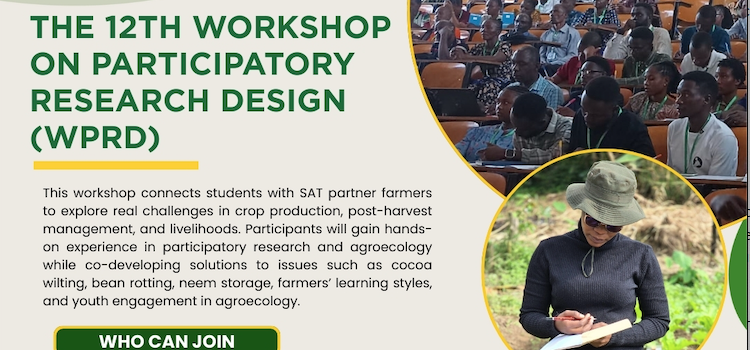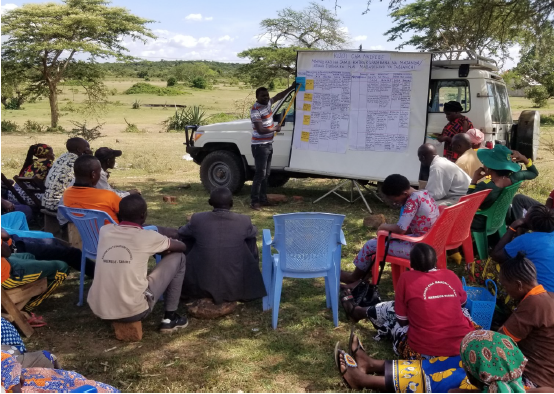Adult learning among pastoralist communities
.jpg)
It's trend and success so far since the implementation of the program.
The basic rationale of adult learning is a keystone for the Farmers and Pastoralist collaboration (FPC) project which created a program that enabled several pastoralist groups based in the villages they live to have access to adult education literacy. With the determination of the participants and motivation of the tutors, despite the challenges encountered in the process, significant progress and transformation have been made.

Based on the new plans and strategies, progression has been observed and implemented by FPC together with the pastoralist groups. In such circumstances the continuation of the problem facing these pastoralist groups is ongoing, and there is still an issue of illiteracy among the adults who are members of this group. At first, it was forbidden for women in particular to have formal education, then circumstances later on changed and the women desired to go to school. But recently we deal with the internal challenges facing the adults who are already engaged in the learning activity and not leaving behind the enrolment of new students who have the desire to learn.
Earlier when the program started, they were 8 pastoralist groups which were introduced to the project, the response of these groups was not quite good because there were huge issues based on the challenges facing these groups. some of the primary groups faced defects that were from the roots of ideology, culture, and environment. Tracing some shortcomings faced by these groups is like; some groups were to be eliminated due to the environmental factors they faced. Taking a good example from the Naedoloki group, it was forced to be eliminated because of the elephant invasion that happens to be a threat to their village. The pastoralist society is so devoted to the obedience of their culture, in society women are portrayed as a weak element in society, so they are not allowed to do what the men do, they are also denied access to quality education. Nevertheless, these societies earlier had conflict issues with the farmers, and this was so outrageous that led to death among them and misunderstanding between these two-party groups. But FPC managed to outreach all their problems and tried to reduce the disparity between the problems faced by the pastoralists and the goals to be achieved in the project.

Currently, they are 10 new pastoralist groups from different villages. The groups are Nadupo , Mkombozi , Namayana ,Mafanikio ,Esupati , Nakoryduyook , Napyook , Ilaramataki, and Naselini. Among these, there are two new groups which are Nakorydyuook and Namayani. the total success of the groups is approximated up to 34% generally and there is an improvement of 24% from each group. All these groups are undergoing adult learning to master how to read and write. The best part of the achievement is that we managed to enroll a quite good number of adults who wish to have an access to education, and a big percentage of this group were women. To the great extent, these groups are on track to achieve their goals.
NAME OF GROUPSTOTAL NO OF MEMBERSNO OF WHO CAN READ +WRITENadupo386Mkombozi3112Esupati176Namayana126Napyook83Inamalarataki3815Nakoryduook4218Mafanikio173TOTAL20369Table showing the number of pastoralists who can read and write now
Drawing an example of a case study from one of the group members who were so open and ready to explain all the strengths and weaknesses that they are facing as a group.
Maria Nyumbu is a pastoralist from Wamburi (Makuture shule) village located at Dakawa ward in Mvomero district. She is a great ideal and inspiration as one of the members of the pastoralist groups. Her story is so inspirational that can lead to pleasant changes for the rest of the members. She exemplifies how her fights, hardworking and perseverance brought success to her life. She joined the group because she had the desire and interest to learn how to read and write. Managing her duties and chores as a Tanzanian woman is not easy, because the division of labour in a Tanzanian household depends on the culture of a particular society. As a Tanzanian woman particularly from the pastoralist society, Maria addressed the problems on behalf of the rest of the members, earlier when she was illiterate it was so hard for her to cope with the outside environment based on the technological changes. She had to face several outcomes because of her illiteracy. Maria was forced to pay fines because she failed to determine the upcoming fixed day to attend the clinic., sometimes she was unable to understand the instructions on the wall posters, so she did reversely what she was asked to do.

Her journey to access education was not easy. It was so difficult for her to balance her daily activities, family, and school. Sometimes she claimed that the subjects were hard and to some extent, she felt like giving up. Learning how to read and write was not a simple task. Maria had to put on extra effort into education because she had a passion for it. It was her dream that one day she could stand Infront of a crowd and read out loud and everyone could understand. She desired to learn so that can read during the meetings and be aware of all that was going on. As the wise man says,” there are no roses without thorns”, Maria currently knows how to read and write the basic words. She is the icon and a role model that inspired other women to crave to know how to read and write.
Now we have a standard number of adults who have the ability to read and write so far. Despite learning how to read and write these groups also do learn about livestock keeping and management, they learn how to save and lend, pasture conservation harvesting and storage to be more resilient to drought conditions. Literally, they work hand in hand with the FPC to achieve the objective goals in the livestock-keeping process.
For more information about Maria Nyumbu please check the following video
https://youtu.be/UpmoGmkZMqQ
The FPC Project is implemented by SAT and kindly supported by Biovision







